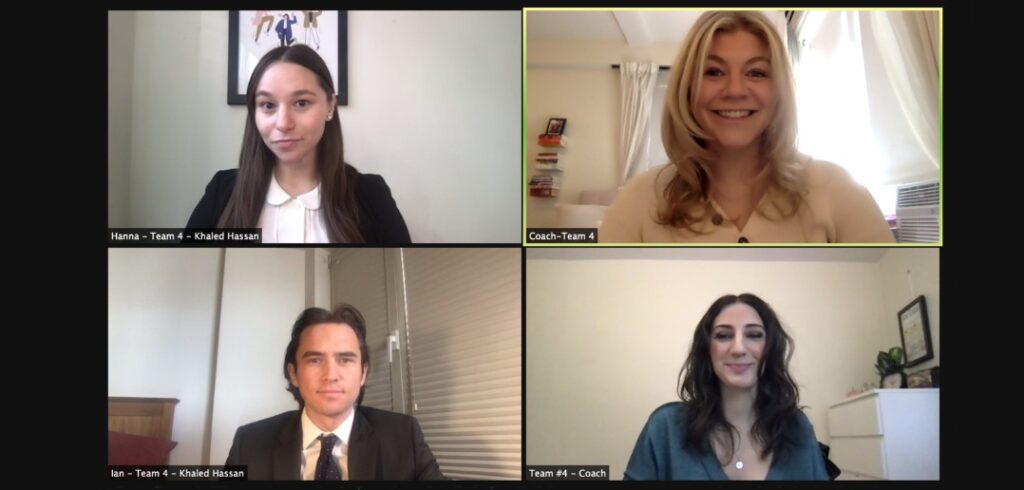Two members of Fordham Law’s Dispute Resolution Society (DRS)—Hanna Zaretsky ’23 and Ian Capell ’23—competed at the national finals of the American Bar Association Negotiation competition on Feb. 4 and 5, making it to the semifinal round.
The ABA Negotiation competition consisted of 240 teams, including 22 teams that competed at the national level. Zaretsky and Capell were named co-champions at the regional competition in November 2021.
“I am so incredibly proud of Hanna and Ian for all their hard work this year, especially in preparation for the national competition,” said coach Allie Lisner ’22. “They did an excellent job representing Fordham at the national level, and it was an honor to coach them along the way.”
The team prepared for the national competition by doing short “mini-moots” as well as full-length moots with DRS alumni. “It’s great to have that alumni support,” said Zaretsky. “It’s helpful to be pushed, because it shows you the weaknesses in your side’s bargaining power or the way you structure the conversation.”
After moving on to the second day of the competition, the team had less than 12 hours to prepare strategies and arguments for three more problems for the next day’s rounds. “We stayed up late, probably until about 2 a.m.,” said Zaretsky. “There was a lot of adrenaline.”
Competitors were judged on their ability to work with the opposing counsel and how they used creative options, along with a pre- and post- negotiation analysis and question periods with the judges. “Before each negotiation, we’re given a list of objectives that we need to reach and typically there’s some zone of possible agreement between both sides,” said Capell. “It’s just a matter of how effectively you get there.”
One case the team negotiated had to do with a fair housing council suing the city over discriminatory housing ordinances, and another case topic had them representing protestors who had been detained and arrested by the police.
Because of the limited time they had, the team relied on a few core strategies, including understanding clearly what their clients wanted, asking useful and probing questions, and “making the pie bigger” by pointing out the benefits of their arguments to the opposing side’s position.
“Negotiation isn’t hard bargaining,” said Zaretsky. “The best negotiation, and the best way to get the most for your client, is to show how your position will also help the other side.”
The teams’ success was led by their dedicated coaches and a community of supporters, said Capell. “Our coaches, Allie Lisner and Maria Chrysanthem, did a phenomenal job preparing us, and they dedicated a lot of time along with Fordham alumni,” he said. “It really just made me feel a part of a team to know that, even though it’s just Hanna and I competing, we had so many people behind us.”

